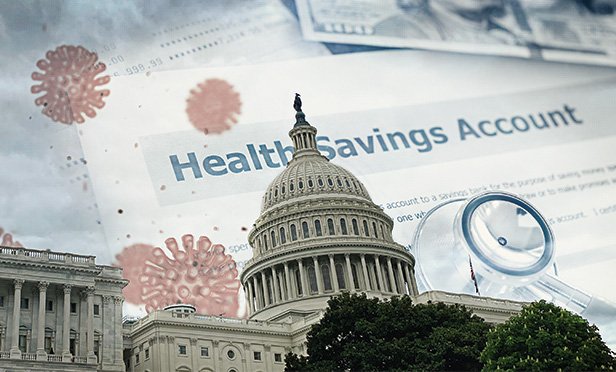
 (Images: Shutterstock; ALM-Chris Nicholls).
(Images: Shutterstock; ALM-Chris Nicholls).
The COVID-19 pandemic is reshaping our notions of work, health, education, racial disparity and personal freedoms — all issues long overdue for change.
The most lasting and important impact we might see when we're on the other side of the pandemic could include a major reset of our employer-sponsored health insurance system.
And the tip of the spear in that transformation is something that you may not have heard before but that has gained incredible momentum in Washington, D.C. over the spring and summer: decoupling.
In simplest terms, "decoupling" means removing the requirement to have a high-deductible health plan (HDHP) as a prerequisite for having a health savings account (HSA).
A growing number of policy experts and elected officials believe that HSAs should be decoupled from HDHPs and available to any American with health insurance, regardless of what kind it is or who provides it.
The reasons for decoupling are as simple as the solution itself: Over the two decades since health savings accounts were created, the economic conditions of the U.S. health care system have dramatically worsened.
HSAs were initially meant to help individuals and employers save money on premium costs while encouraging people to adopt more consumer-like behavior in their health spending. Hence, a high deductible, not unlike your car or home insurance.
Today, virtually all health plans — whether HDHP, HMO, PPO or Obamacare — have a high deductible. At the same time, health utilization costs have skyrocketed along with premiums and deductibles. In addition, traditional employment and the notion of company benefits is being challenged by the boom in contingent or "gig" workers.
People need relief. And while decoupling won't solve every health care problem, it could provide desperately needed options for those who are perhaps more worried about their health and finances than ever before.



